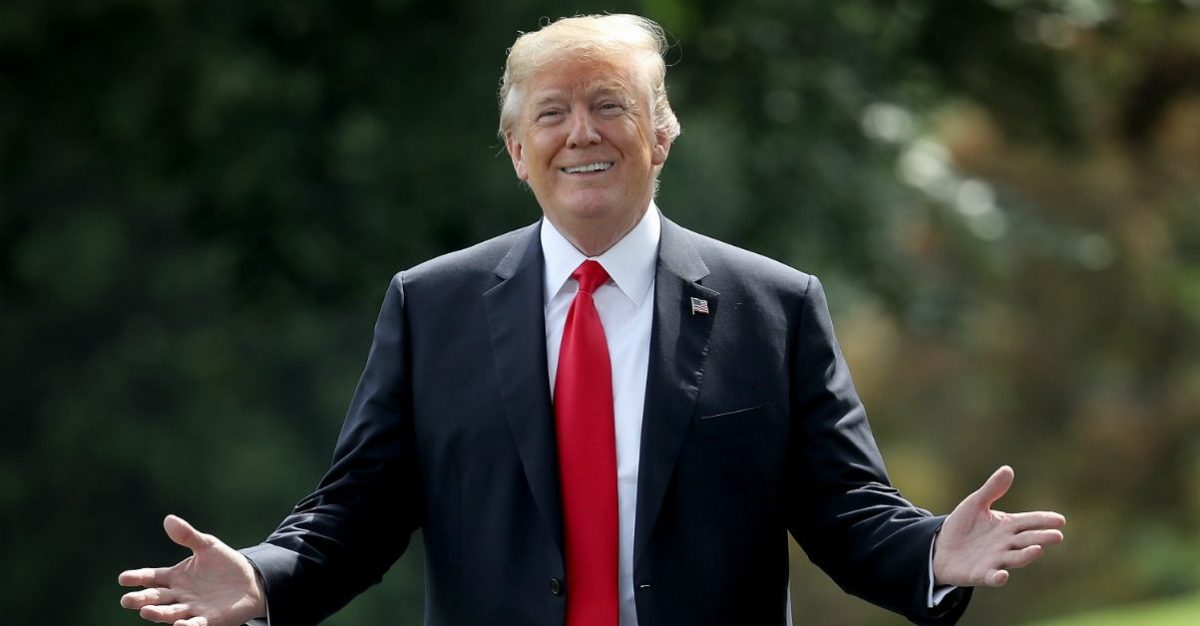
Michael Cohen stated under oath in open court that Donald Trump directed him to commit crimes, and now everyone is going nuts about how this is finally what’s going to get Trump impeached. Of course, anyone jumping to that conclusion is probably failing to consider one question: can a president even be impeached for things he or she did before taking office? The House Judiciary Committee once answered this question with a resounding no.
The main idea here is that impeachment is supposed to be used as a measure against an official who acts improperly while serving in office. Instead of charges filed by prosecutors and a trial by jury, the House files articles of impeachment, and the Senate determines whether or not to convict. Neither the Constitution nor federal law specifies that impeachment only applies to misconduct committed during an official’s term, but the issue came up before Congress way back in 1873.
At the time, the issue was whether or not to impeach Vice President Schuyler Colfax over bribery allegations. The problem was that Colfax’s alleged crimes took place before he became Vice President. The House Judiciary Committee said then that impeachment “should only be applied to high crimes and misdemeanors committed while in office and which alone affect the officer in discharge of his duties as such, whatever may have been their effect upon him as a man, for impeachment touches the office only and qualifications for the office, and not the man himself.”
Based on that, whatever crimes President Trump may have committed while directing or coordinating illegal campaign contributions wouldn’t be grounds for impeachment. If he were to lie about it under oath, he could be impeached for perjury like Bill Clinton; if he tries (or already tried) to cover it up while in office, that could be grounds for impeachment for obstruction of justice, but right now there’s no indication that he did either of these.
There’s also another argument to be made that deals with the definition of “high crimes and misdemeanors,” which is the constitutional standard for an impeachable offense. As Harvard Law Professor Noah Feldman pointed out in a Bloomberg op-ed, “high” can arguably refer to a crime that is specifically committed by an official. Since Trump wasn’t an official at the time the payments to Stormy Daniels and Karen McDougal were made, they may not qualify.
“It took place before Trump was in office, and it’s possible to argue that the crime was therefore not ‘high’ because it wasn’t committed by President Trump but by candidate Trump,” Feldman said.
Of course, like most juicy legal issues, each argument has a counterargument, and this is no different.
Despite the House’s 1873 determination against the impeachment of a Vice President, they had a very different attitude towards impeaching a judge in 2010. Thomas Porteous was a federal judge in the Eastern District of Louisiana, and he was impeached–and then removed from office–due to actions that took place before he took office. A key difference between Porteous and Colfax was that while Porteous was found to have committed crimes before taking the bench, he also tried to cover it up during his confirmation process. As a result, some of his actions could be said to have led to him being confirmed to office.
One who wants to impeach Trump could argue that the current case is pretty similar. While Trump’s alleged actions took place before he was elected president, Cohen did state that he directed the payments with the goal of suppressing information that would be hurt his campaign. That’s not quite the same as concealing information from a Senate confirmation hearing, but it’s fairly similar, given that it’s hiding information from the voting public.
Going back to the definition of what a “high crime” is, Professor Feldman also noted that the payments to Daniels and McDougal were related to Trump’s campaign, so a related crime could qualify “because it is tied to the office that Trump now holds.”
For those wondering about criminal charges, those would have to wait until he’s no longer in office because Justice Department guidelines say a sitting president cannot be charged with a crime. Whether Trump’s term could be cut short due to impeachment and removal, however, remains unclear. If Democrats take control of the House in November, we could get an answer.
Ronn Blitzer is the Senior Legal Editor of Law&Crime and a former New York City prosecutor. Follow him on Twitter @RonnBlitzer.
Elura Nanos contributed to this report.
[Image via Win McNamee/Getty Images]